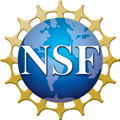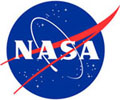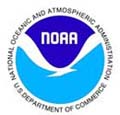On This Page
Overview
November 8-10, 2010
The Molecular Biology of Biogeochemistry: Using molecular methods to link ocean chemistry with biological activity.
A Scoping Workshop supported by the Ocean Carbon and Biogeochemistry (OCB) Program
Conveners: Jim Moffett and Eric Webb
University of Southern California
Planning Committee: Bob Anderson (Columbia), Ginger Armbrust (UW), Kevin Arrigo (Stanford), Bess Ward (Princeton), Keith Moore (UCI), Ben van Mooy (WHOI)
_____________________
Application of molecular biology to biogeochemistry is based on a central premise: Organisms respond to changes in their chemical and physical environment in highly specific ways based on their individual genomes. This response can be assessed by examining the genomes of natural assemblages of microbes, and the response itself can be examined by looking at the transcriptome (reflecting up-regulation of key genes) particularly of the several hundred marine microbes for which we now have complete gene sequences. Ultimately transcription leads to the synthesis of proteins that, among other things, enables organisms to adapt to changing conditions or to optimize their physiology and catalyze key processes in all biogeochemical cycles. These specific proteins can also now be studied in natural samples in the rapidly expanding field of proteomics. Integration of these techniques with detailed biogeochemical sampling can lead to resolution of longstanding questions as well as defining new principles for ocean biogeochemistry.
This workshop will convene molecular biologists and biogeochemists to determine what genomic and proteomic tools can be applied to important problems in the carbon, nitrogen and phosphorus cycles of the ocean through an understanding of how microbes and primary producers interact with their physical and chemical environment. The workshop is timely because of the current emphasis on large-scale observational programs such as CLIVAR and GEOTRACES as well as observatory programs using moorings and new technologies like gliders. These programs address important problems in biogeochemistry, but many, particularly the global ones, rely primarily on chemical measurements. With a few notable exceptions (like the Video Plankton Recorder, VPR), biological measurements are difficult to integrate into the rigorous intensive sampling demands of large sectional surveys. Molecular biological information combined with core parameters measured on GEOTRACES sections would significantly enhance the value of the entire database to OCB objectives.
Meeting Objectives
To develop recommendations for specific molecular biological measurements carried out within large-scale global surveys that address the OCB themes of (1) Feedbacks and climate sensitivities of biogeochemical cycles; and (2) interactions with ecosystem structure, ocean carbon production, uptake, and storage.
Key Questions
- What are the key parameters we would like to measure, particularly on large sectional survey cruises?
- How many of these parameters can we characterize in a robust, quantifiable, way, now, or in the near future? What is reasonable based on cost?
- Many of these data are operationally defined. What does that mean for these tools, and how much “operational definition” is acceptable?
- Given the finite number of organisms with complete genomes, how useful is the concept of autoecology (as with Prochlorococcus) for answering important questions in biogeochemistry?
- Is proteomics on mixed assemblages of natural organisms likely to be tractable in the foreseeable future?
- From the answers to the previous questions, can we develop a prioritization for what should be measured within the framework of large global surveys?
- How important are large, dedicated cruises, perhaps incorporating process studies, to validating molecular tools? What are some examples?
The highest priority of the workshop is to identify tools - genomic, transcriptomic or proteomic – that are immediately available for cruise implementation, but also those that might be available in the very near (< 5y) future. The workshop will begin with several keynote speakers covering state of the art molecular approaches and will discuss questions 1 and 2 in plenary. Next, the main group will break into working teams to continue questions 1 and 2 organized by biogeochemical focus (e.g., primary production, oxygen minimum zone, N2 fixation). Groups will reconvene in plenary to report their findings. Breakout groups will be organized at that point in terms of methodology and approach (e.g., a “Proteomics” breakout group & an “Autoecology” breakout group). We will reconvene in plenary to discuss findings, as they relate questions 6 and 7. A synthesis of the workshop presentations and discussion will be prepared by the organizers, submitted as a workshop report, which will form the basis for future field and research programs supported under the auspices of OCB.




Agenda
Agenda
Molecular Biology of Biogeochemistry Workshop
Wilshire Grand Hotel, Los Angeles, CA
November 8-10, 2010
| Monday, November 8 | |
| 730 |
Breakfast |
| 845 | Introduction - Jim Moffett |
| 915 | Mak Saito - CoFeMug an integrated Biogeochemical Section |
| 945 | Bob Morris - CoFEMug proteomics |
| 1015 | Break |
| 1030 | Adam Martiny - Relating genotypic diversity to specific chemical and physical parameters |
| 1100 | Eric Webb - Functional genomics: Controls on Trichodesmium N fixation |
| 1130 | Jed Fuhrman - Whole microbial community structure, from viruses to protists, and their interactions |
| 1200 | Lunch |
| 1300 | Ginger Armbrust - Functional Genomics II Probing controls on C fixation by eukaryotes |
| 1330 | Bethany Jenkins - Eukaryotes and Fe |
| 1400 | Karla Heidelberg - Eukaryote genomics and metagenomics |
| 1430 | Bess Ward - Molecular and geochemical tools combined to study the N cycle in OMZs |
| 1500 | Break |
| 1545 | Steve Giovanonni – Sar11 genomics and proteomics - focus on the processes and genes |
| 1615 | Dave Hutchins - Role of molecular biology in assessing the effects of climate change on marine ecosystems |
| 1645 | Plenary Discussion Breakout Section for Tues AM. Discussion Leader: Jim Moffett |
Breakout Theme I: Identifying and prioritizing what properties of microbial assemblages we need to characterize to compliment chemical measurements within the framework of a sectional survey program.
|
|
| 1800 | Meeting Adjourns |
| Tuesday, November 9 | |
| 0730 | Breakfast |
| 0830 | Breakout Groups Meet |
| 1000 | Break |
| 1030 | Plenary session Reports from Prioritization of Parameters Groups |
| 1100 | Plenary Discussion Assembling an array of parameters to measure on a section Discussion Leader: Bob Anderson |
| 1200 | Lunch |
| 1300 | Plenary Session Organize Breakout Groups Discussion Leader: Eric Webb |
Theme II Critical Evaluation of Tools
|
|
| 1330 | Breakout Groups Meet |
| 1500 | Break |
| 1530 | Breakout Groups Report |
| 1600 | Plenary Discussion (continued) Assembling an array of specific tools to measure on a section Discussion Leader: Bess Ward |
| 1730 | Organize Wed AM Breakout Groups Planning and Logistics of a Field Campaign |
| Theme III Implementation of a field program Integration with GEOTRACES and other programs (Priorities) (Anderson, Van Mooy) Integration with GEOTRACES and other programs (Logistics) (Moffett, Morris) Data Synthesis and Interpretation (Martiny, Pearson) Validation of molecular tools – Priorities and Timeline (Fuhrman, Ward) |
|
| 1800 | Meeting Adjourns |
| 1900 | Group Dinner |
| Wednesday, November 10 | |
| 0730 | Breakfast |
| 0830 | Breakout Groups Meet |
| 1015 | Break |
| 1045 | Plenary Group Reports and draft sampling plan for an actual section Discussion Leader: Jim Moffett |
| 1215 | Lunch |
| 1300 | Plenary Discussion What major science issues need to be addressed to fund a stand-alone program? Trophic issues? Genomic data for more prevailing species? Discussion Leader: Kevin Arrigo |
| 1500 | Workshop Ends |
| 1530 | Steering Committee Meets |
Related Resources
Microbiological Targets for Ocean Observing Laboratories (MicroTOOLs) (https://sites.google.com/site/microtoolsii/)
Workshops were held to discuss the development of in situ and high throughput molecular (DNA, RNA, protein) approaches for studying the biogeochemical activities of open ocean microbes.
There are two reports from this workshop that detail discussions at the workshops, and the progress to make the first community-available microbial oligonucleotide arrays based on genes from key marine microbes and genes that encode biogeochemically important processes.
It is hoped that momentum will continue to grow, including wider participation of the marine microbial community in developing and applying this resource.
Please contact Irina Ilikchyan (iirina@ucsc.edu), Julie Robidart (jrobidart@ucsc.edu) or Jon Zehr (zehrj@ucsc.edu) for further information.
Related Files
Workshop Report
Click here for a PDF file of the workshop report.



